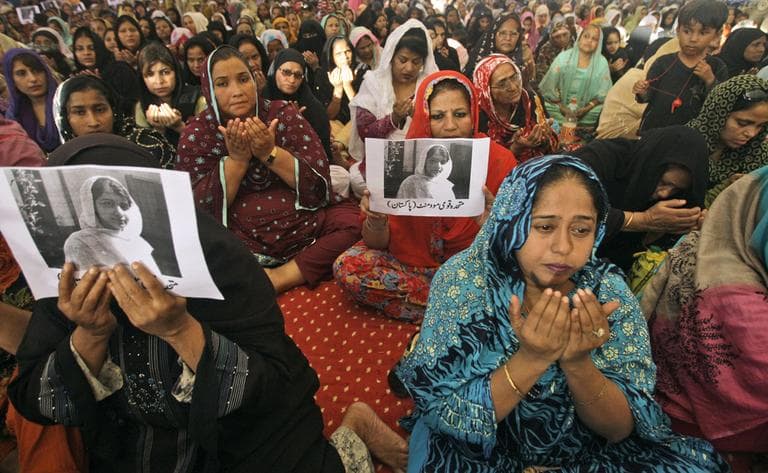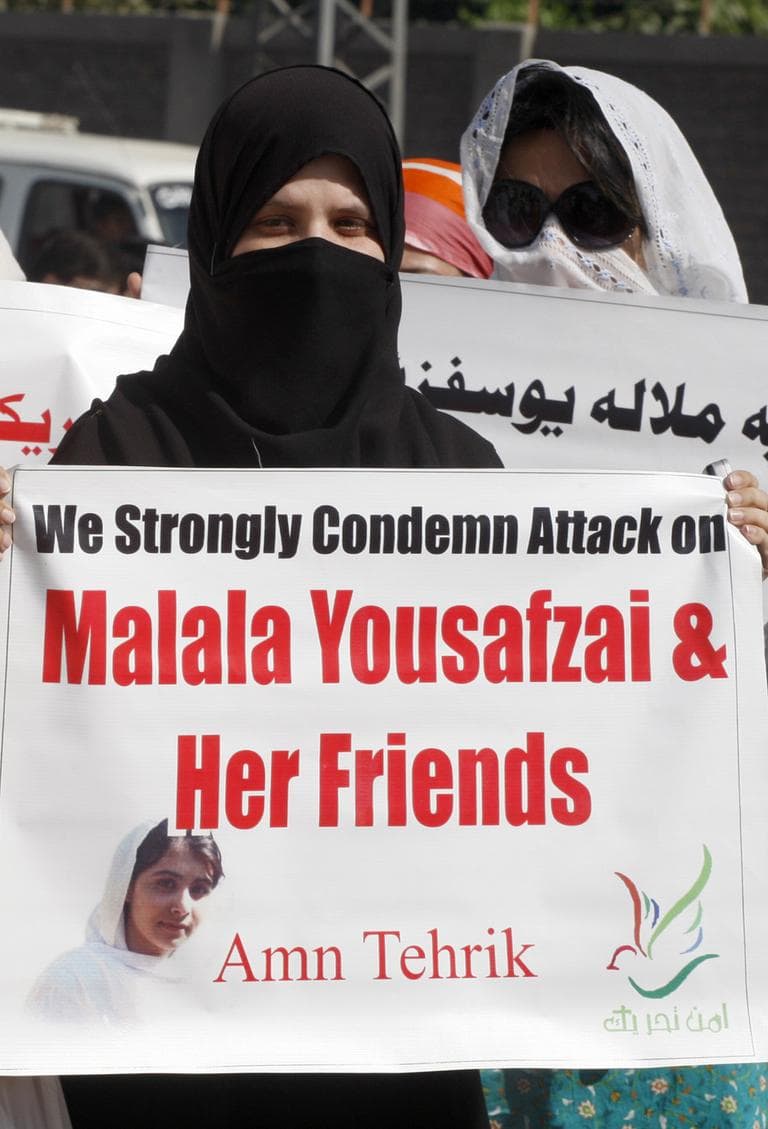Advertisement
A Voice For Girls Education In Pakistan Muffled
Resume
On Tuesday, Taliban gunmen boarded a school bus, asked for 14-year-old Malala Yousafzai by name and then shot her in the head and neck. The New York Times reports that a Taliban spokesman confirmed by phone that Ms. Yousafzai had been the target.
Over the past few years, Yousafzai has become the face of the girls' education movement in Pakistan. Her father used to run a girls school in their hometown in the Swat Valley. But in 2009 when the Taliban announced that they would be forcefully closing the all-girls school, she gave up her dream of becoming a doctor and decided to become a politician, like her father wanted. She hoped that she could affect change in her country.
Journalist Adam Ellick of the New York Times captured her story in his 2009 documentary, "Class Dismissed." He spoke to Here & Now's Robin Young.
Interview Highlights
The Risks Facing Malala's Family
"Whenever we spoke about death, which was quite often, we always spoke about [Malala's father] Ziauddin being the bull's-eye and him taking the risks, and will they target him. And we knew that they wanted him, and he used to always dismiss it and just say, 'We live with death, we have a different notion of death than you in the West.' It just never occurred to any of us that Malala would be a victim as well."

How Malala's Father Is Doing
"I haven't spoken to him this week, but I've been in touch with very close family and friends. I've just been told that he is really, really anxious and nervous and depressed."
The Timing Of The Attack
"What's so surprising about this is the timing of it. It happened at a time when, I think, Swatis are more comfortable than they've been in years. And I think Malala and Ziauddin embraced that comfort and felt more emboldened than ever before... The Taliban are a violent invisible minority. They live amongst the people. They are their neighbors. They don't represent most people. But when they decide to make a statement, it's violent, and as we've seen this week, there's no way to really counter it."
Whether Adam Regrets Putting Malala In The Spotlight
"When I met Ziauddin, he was a very prominent local education activist. And I was trying to convince him not to make this film, because I thought it was too dangerous. And he was insisting that it has great potential, and he basically assured me that the Taliban already knows who he is. So in that sense I feel like I don't carry that much guilt. But on the other hand, I'm part of a system that over time gave the family more and more confidence, and that encouraged them to to speak out more and more. And as a result they probably infuriated the Taliban."
Guest:
- Adam Ellick, reporter and video producer at the New York Times. He tweets @aellick.
This segment aired on October 11, 2012.